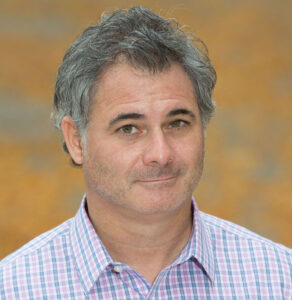Today, Feathered Quill reviewer Lynette Latzko is talking with Andy Frye, author of Ninety Days In The 90s: A Rock 'N' Roll Time Travel Story
FQ: I recently finished reading a memoir based in the 1980s, and loved reminiscing about bits of that great era, but now that I read Ninety Days in the 90s, I find myself loving all that was great about that era too. Why did you choose to have your main character travel back to this particular decade?
FRYE: Just out of college in the mid-1990s, I am part of the first generation that really lived as citizens in both the analog and digital worlds. We went from writing letters and mailing postcards to using email. From busy signals to locating people by GPS and smartphone 24/7. And from four TV channels to thousands.
But the ‘90s music scene was important, too. Pop radio went from a heavy rotation of Milli Vanilli to artists that wrote their songs and played instruments. From mass-produced McDonald’s music to Nirvana, Alice In Chains, Tori Amos, and L7. From Spandex-clad hair bands topping charts to Alanis Morissette selling 33 million copies of Jagged Little Pill. Culturally, it was a big shift.
FQ: Over the years, you've interviewed many music bands (and other celebrities). Who was your favorite band to interview?
FRYE: I’ve interviewed and spoken to Billy from Smashing Pumpkins a few times, so I’ve gotten him in different moods, and when he’s both guarded but also open and willing to talk about new projects, sports, and more. That’s helped me as a writer see different sides of the person versus the celebrity. Seeing people that way from all angles is like observing all four seasons instead of just one.
FQ: Part of Darby’s new job in the past is writing the “Latecomers’ Reviews” on past concerts. For me, I would have loved to go back in time and see the Freddie Mercury tribute concert on April 20, 1992 (I was actually in London, and will forever be annoyed that I couldn't attend). What concert would you love to be able to go back in time and get to see live?
FRYE: Yes, Darby inadvertently gets back her old job as a music writer and realizes she had more autonomy and much more to say than she ever realized—and then makes the most of it.
I have several shows I’d see. Nirvana’s first Chicago show took place October 12, 1991, at Metro, 33 days after Smells Like Teen Spirit was released and changed music forever. Also, the first Oasis show, September 1994, also at Metro. Perhaps that’s why Darby goes back in time to write reviews of those shows.
Plus, I’d see James Brown open the brand new Chicago House of Blues, during Thanksgiving week, 1996. (Turns out Darby had a big show to see that weekend too.)

FQ: Are any of your characters in this book based on you or anyone else?
FRYE: Like myself, Darby is a music lover, coffee aficionado, and insomniac. But I tried to craft her and her friends as unique people. Many of the main characters were informed by people I know or their quirks.
Some scenes are based on things that happened, such as one in the chapter called “Generation Terrorists”—in which rival punk rock girls are arguing on a Chicago bus about whether or not it’s a “sell-out” move to use a cell phone. We had debates on such topics in the ‘90s.
FQ: Do you have past events in your life that you would like a “do-over” and if given a chance, would you time travel to fix it?
FRYE: Perhaps I might do over the part in which it took five years to write this debut novel. Then again, I learned a lot along the way.
FQ: Did you find it difficult or weird to transition from what you have been doing so well for many years (writing articles and interviewing people) to writing a book, which is often time-consuming, and more of a solo endeavor?
FRYE: Not really. I’ve spent the last decade writing about sports, so there is a lot of interviewing and essentially a lot of character study that happens. You learn to ask open-ended questions and listen and observe. That’s helpful when it's time to create characters and reconcile why they do what they do, how they think, and what past experiences make them who they are.
I’ve also done improv comedy for years, which is a very Chicago thing to do. Improv helped me understand how to write realistic dialog.
FQ: As a professional interviewer, what are some tips you would suggest to me and my fellow reviewers at Feathered Quill to avoid the same trite questions everyone asks and keep the interview fresh and an interesting read?
FRYE: I’m not sure I’m qualified to tell you how to do your job, but I think good fiction writers take great care to know their characters and probably want to share as much as possible about who they are and why. So, I’d start there.
FQ: Do you have any new writing projects in store for the future?
FRYE: I’ve got an idea for a baseball novel called A Chip On Both Shoulders, about a girl who grows up to be the first female Major League pitcher, and I’ve also got a proposal I’ve queried for a non-fiction sports book called Smashing Adversity. But for now, I’m focused on proselytizing about the greatness of 1990s culture with Ninety Days.


No comments:
Post a Comment